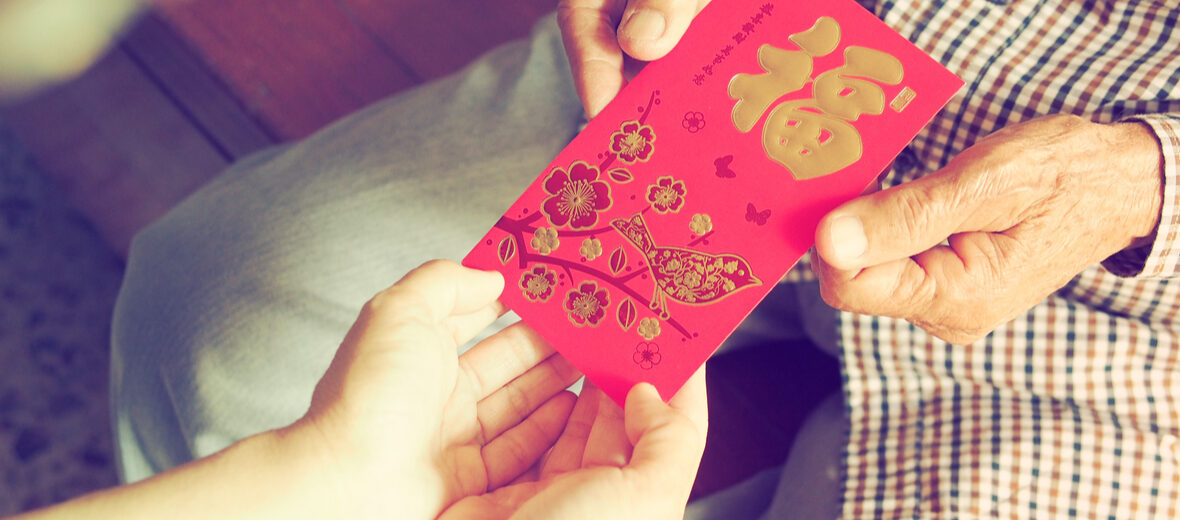It is nearly time to celebrate Chinese New Year in Hong Kong. Following the lunar calendar, the first day of the new Chinese year will be on 12 February.
In the Charlton House office, we recently had a conversation about the new year celebrations, and what to expect in Hong Kong. We were keen to understand the etiquette around new year greetings, and the giving of red packets.
Here are some hints and tips that you might find useful.
Addressing a client with a Chinese name
Chinese names are structured by last name, then first name or names. This is often misunderstood and can lead to awkwardness during your first meeting.
Here are some straightforward dos and don’ts, using ‘Mr Wong Tai Man’ as an example.
- Things to do
Addressing him using his courtesy title along with his last name conveys respect and politeness. So “Hi, Mr Wong” is an acceptable greeting.
If you are carrying out a business introduction you would say “Let me introduce you to Mr Wong” or “Let me introduce you to Mr Wong Tai Man”.
- Things to avoid
Never address someone by only using their last name. So “Hi, Wong” is incorrect.
Avoid addressing someone by their first name or names unless specifically asked to, or if the person you are meeting is well known to you. In this instance, you should use both names – “Hi, Tai Man” –unless they indicate a preference for using one name or the other.
It can get confusing
If you live in Hong Kong, it is highly likely that, at some stage, you’ll have been referred to as Mr Stephen or Mrs Janet. Often, a local employee may not understand the name structure for a non-Chinese name, so they will address you with the same formality as if you are Chinese.
It is common for the name “Stephen”, for example, to be used in first or last names in western culture and the local employee may not be aware of the cultural difference for “Stephen” to be written as a first or last name.
To avoid misinterpretation, he or she may greet someone as “Mr Stephen”. They are just being polite and professional.
Chinese New Year greetings
Here are some common Chinese New Year greetings in Cantonese, which is the most common Chinese dialect in Hong Kong.
“Gung hay fat choy” – Wishing you prosperity and wealth!
This is often used at the very start of a conversation during Chinese New Year, almost in the same way you would say “hi” to someone.
Before adding your follow-up greetings, you will need to connect the sentence by saying “juk nei” which means “wishing you”.
You can then add one, or more, of the following common greetings:
- Bo bo go sing – Be promoted to higher and higher positions
- Sang yi hing lung – May your business boom and grow
- Maan see yu yee – May everything go well
- Sun tai geen hon– Best of health.
Once you’ve memorised these, you can have fun by picking and choosing the ones that you find most relevant to the person you are greeting. Don’t feel that you should only use one at a time.
You will soon to be an expert and greet someone with “Gung hay fat choy, juk nei bo bo go sing, sun tai geen hong, maan see yu yee!”
Chinese New Year red packets
You may well have heard about, or seen, the giving of gifts of red packets at Chinese New Year in a work, social or family gathering.
Red represents good luck in Hong Kong, and they are filled with money. By sharing your wealth and wishing the person “good luck” for the next year, good deeds will be returned to you with a bigger fortune.
Here are a few quick tips on red packet etiquette.
- Things to do
As a business owner or line manager, on the first day of business after the new year (15 February), gift a red packet to each of your employees or subordinates to wish them a prosperous year. Having happy employees could also put you in line for a prosperous new year!
Fill each envelope with even-numbered amounts of money, such as $10, $20 or $100.
You may also use other bright colours for the packets, such as purple or gold.
- Things to avoid
Never give a red packet containing an odd-numbered amount of money, such as $11 or $23. This is only acceptable at unfortunate or sad events.
Never use white envelopes either, as this also symbolises sadness and an unfortunate event.
In Hong Kong, try not to give red packets containing coins. If you imagine being given thirty envelopes in a day, by the end of it your pockets will be very heavy!
If you are in another country that celebrates Chinese New Year, you may have smaller denomination notes for the packet. The key thing is to just make sure the amount totals an even number.
Happy new year!
We hope you find the tips we have provided here to be useful.
It only remains for us to greet you all “Gung hay fat choy, juk nei maan see yu yee!”




 Production
Production